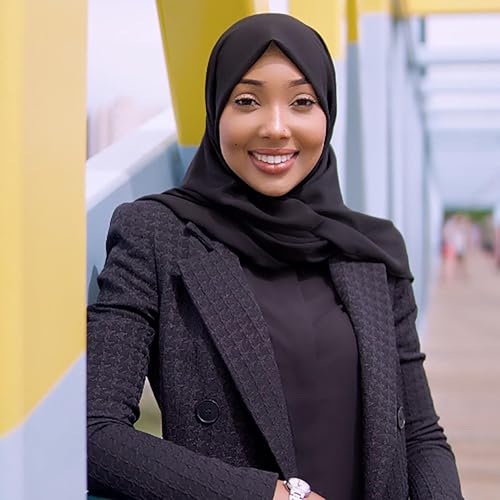
Regenerative Futures: Kowsar Mohamed on Water Governance
Failed to add items
Add to basket failed.
Add to Wish List failed.
Remove from Wish List failed.
Follow podcast failed
Unfollow podcast failed
-
Narrated by:
-
By:
About this listen
Kowsar Mohamed, a distinguished two-time alumna of the University of Minnesota, currently serves as an Enterprise Director with the State of Minnesota while pursuing her doctorate in Natural Resources Science and Management. In this enlightening discourse, we delve into her extensive experience as an economic development practitioner, where she has adeptly bridged the realms of ecology, governance, and community inclusion. Mohamed articulates her profound insights into water governance, emphasizing its critical role in fostering community resilience and ecological sustainability. She also discusses her initiative, Ecosystem X, which serves as a regenerative systems lab aimed at developing innovative tools for community engagement in environmental stewardship. As we navigate the complexities of inclusive growth and environmental justice, Mohamed's perspectives underscore the necessity of integrating local knowledge and practices into broader governance frameworks.
Kowsar Mohamed's extensive expertise in economic development and her passionate advocacy for regenerative practices are the focal points of this engaging podcast episode. As a two-time alumna of the University of Minnesota and a current PhD student specializing in Natural Resources Science and Management, Kowsar's dual focus on academia and practical application underlines her multifaceted approach to community resilience and water governance. The dialogue begins by exploring Kowsar's formative experiences in community organizing, which laid the groundwork for her commitment to inclusive economic growth, particularly in urban settings.
Throughout the discussion, Kowsar articulates her vision for a future where water governance is approached through a lens of equity and sustainability. She emphasizes the importance of reindigenizing water governance practices, drawing on her Afro-indigenous heritage to highlight the need for a more holistic understanding of water as a communal resource. This perspective challenges listeners to reconsider the commodification of water and advocates for a governance model that prioritizes the well-being of communities over profit. Kowsar's reflections on the systemic inequities faced by marginalized groups in accessing water resources resonate deeply, providing a critical examination of current governance structures and their impacts on community well-being.
The episode further delves into Kowsar's innovative work through Ecosystem X, a platform she established to foster collaboration across sectors in pursuit of regenerative solutions. She discusses the organization's mission to develop tools and frameworks that empower communities to take charge of their environmental futures. By integrating data-driven approaches with community insights, Ecosystem X aims to create sustainable practices that are both effective and culturally relevant. Kowsar's call to action for more equitable philanthropic practices underscores the necessity of dismantling traditional funding barriers to enable grassroots initiatives to thrive. As the episode concludes, listeners are left not only informed about the complexities of water governance but also inspired by Kowsar's unwavering commitment to fostering inclusive, resilient communities.
Takeaways:
- Kowsar Mohamed's extensive background in economic development showcases her commitment to community resilience and inclusion.
- Her doctoral research focuses on the vital areas of regenerative systems and water governance, emphasizing community-led approaches.
- Ecosystem X, founded by Mohamed, aims to create a hub for diverse ecosystems, bridging economic, environmental, and social initiatives.
- Mohamed advocates for re-indigenizing water governance to restore community-centered practices that prioritize access to clean water.
- The podcast underscores the importance of integrating local community knowledge into environmental...


